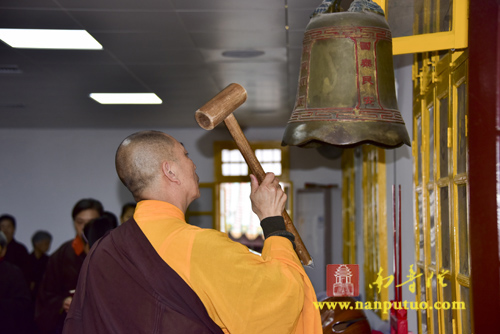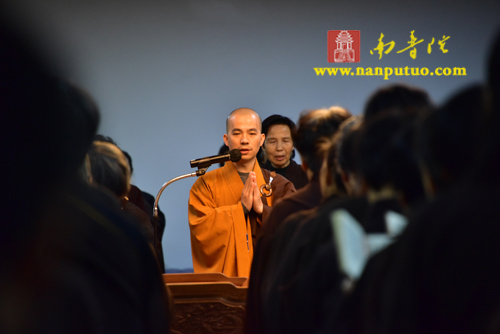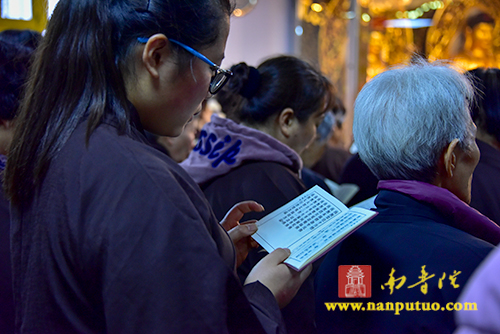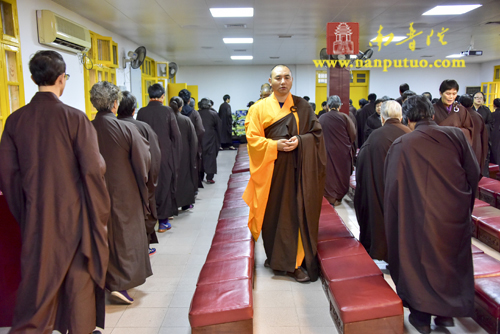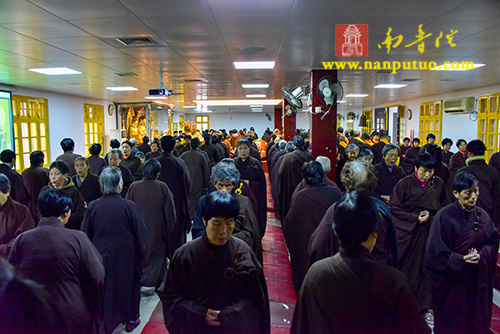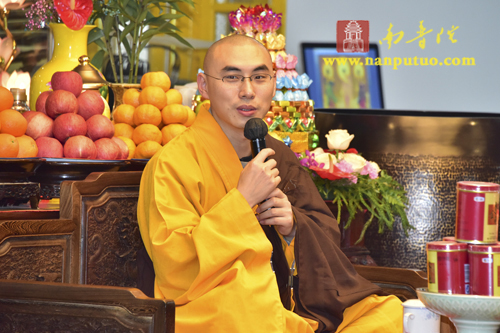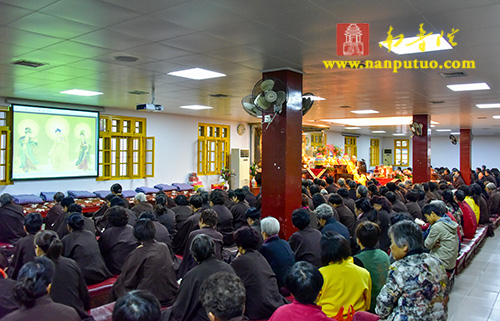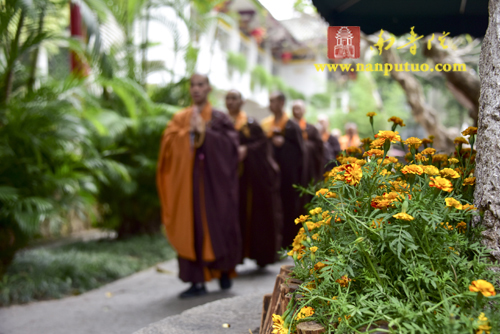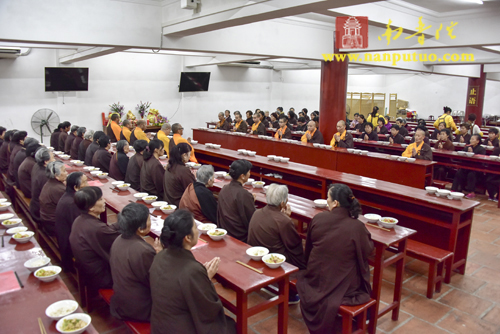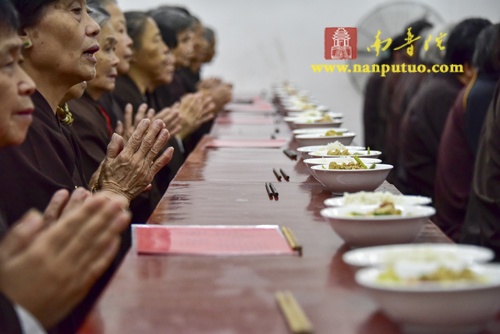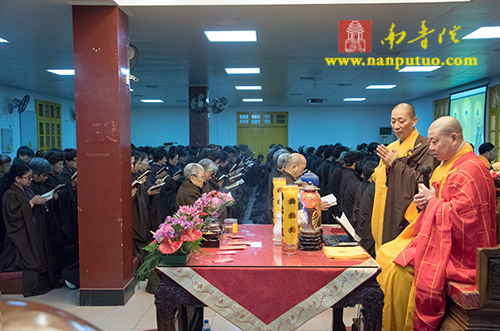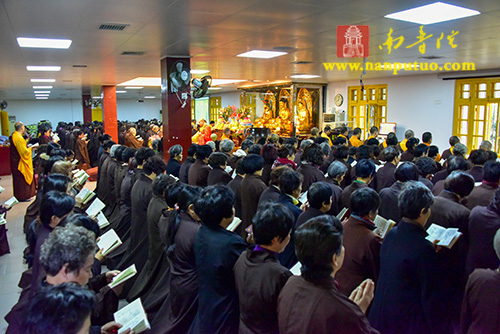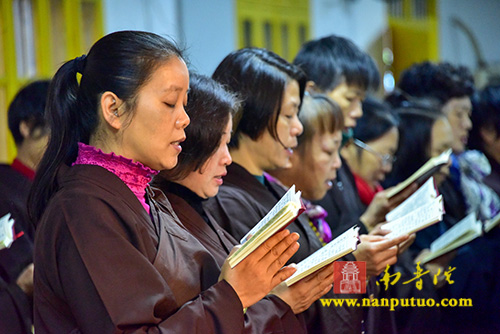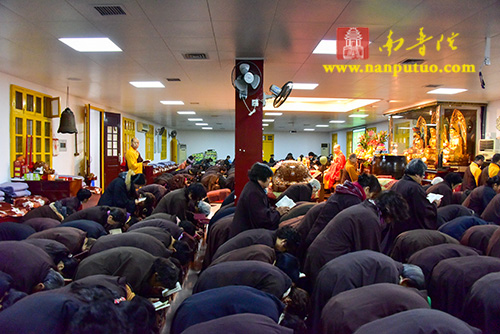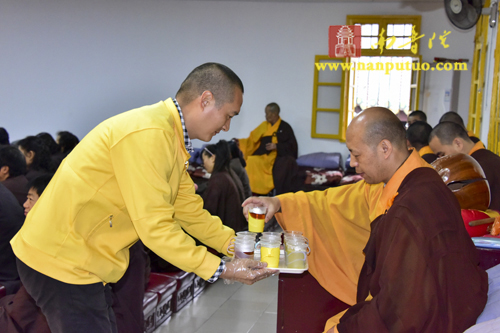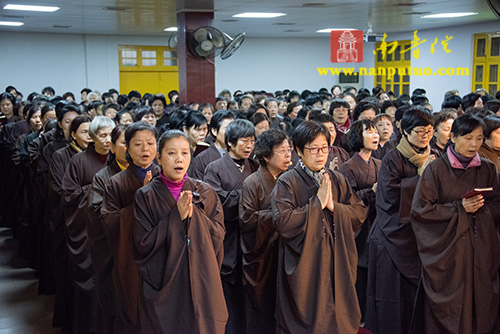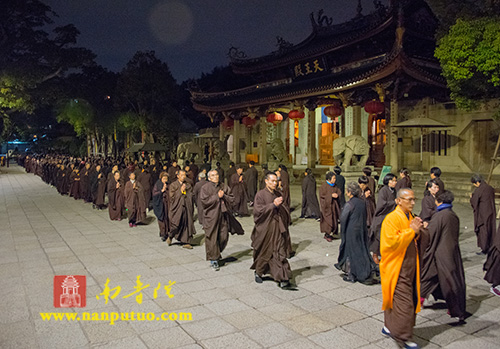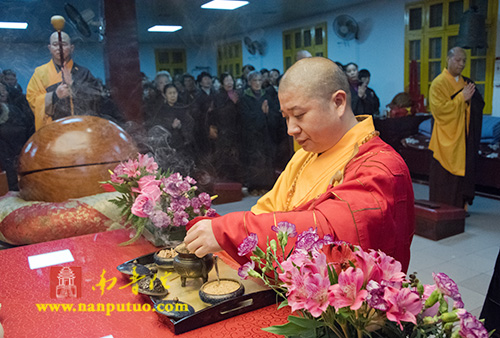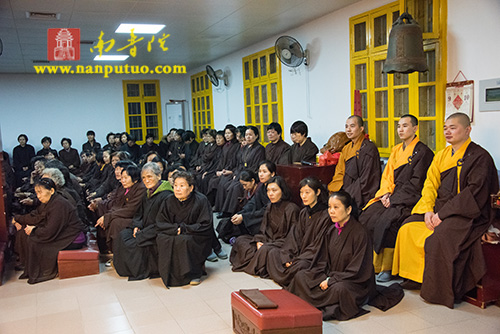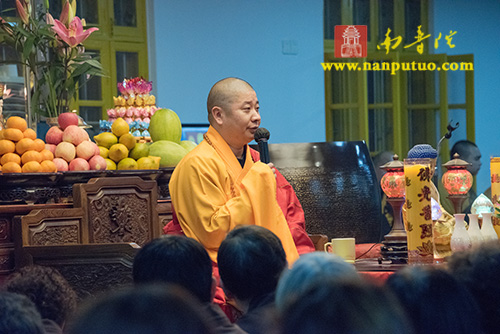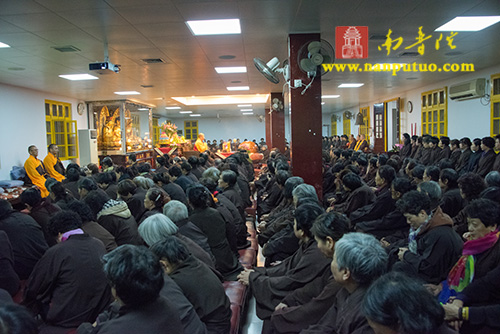On January 10th, 2018, the 14 days of the Seven-day Amitābha Retreat of the winter was completed successfully in the Buddha recitation at the Nanputuo Temple in Xiamen. The Most Ven.Ze Wu was respectfully invited to preach Dharma to the Buddhists.
At 6:00 p.m., Ven. Zheng Miao led the four kinds of disciples of Buddhism to chant the name of the Buddha, worship the ancient masters and transfer all the merits of by recitation of the name of Amitābha to all the sentient beings and all the living beings; simultaneously pray for the world peace, prosperity and peace of country, and good weather.
After the transferring of merit, the Most Ven. Ze Wu (abbot) preached with compassion: "Nowadays, society is developing too fast likewise the pace of human life is also getting faster. It brings a great deal of conveniences as well as a lot of pressure. The continuous development of science and advance technology, the mind of the people have become more distinguished in comparison with others. Greed is unlimited and it is difficult to be content and manipulation. After engaging in greed, it would bring a lot of troubles. Some people will satisfy their desires through improper means and eventually they will bring suffering to themselves and other people who associated near them.
Xiamen is a city that reflection the light of the Buddha because each of the community has many volunteers and the figure of Buddhists. Regardless of the wind and rain, there are always many devotees who visit the temple for worshipping the Buddha. Everyone has a dominance and influence in family and society. Furthermore, he emphasized that the blessing and practicing are not only limited to monastic but also for the lay people who also learn Buddhism and become the Buddhas.
Through learning Buddhism one can enhance and elevate one’s life. Through this half a month of meditation, I hope that you will build up the right view of Dharma, reduce greed, and increase the pure mind. Besides, you should focus on the present moment with mindfulness, worry less and do not become misery; therefore, you would not lose your intention of Seven-day Amitābha Retreat.
After returning home, you all must have the right view and do not spread superstition because your image is very important in propagation of Buddhism. I hope that we can consolidate and utilize the application of Buddhism in life, and also help people around us. Finally, I wish you accumulating of merit and wisdom, accompanying with auspiciousness and may your dream come true.
During this period, Ven. Liao Rui Master, the secretary and the chief of the Dharma Preaching Unit of Nanputuo Temple was invited to preach the Amitābha Sutra to the public. Ven. Miao Zheng gave the observance of Eight precepts to the hundreds of practitioners who participated in this event. All of them were observing happily.
The Connotation and Function of Diligence of Seven-day Retreat of the Buddha
Seven-day Retreat of the Buddha refers to a good karma that a group of practitioners practice together at a particular time and place, purification the platform, elimination of distraction, concentrating of energy, encouraging each other and mainly based on chanting the name of the Buddha. The Buddhist activities are one of the important ways of practice that the practitioners can detach from the secular life and do not seek extreme pleasure. It is the main purpose of limited time to gather merit and accumulation of merit to go to the Pure Land. Seven-day Retreat of the Buddha generally has the following aspects: (1) eliminate distraction and reduce the external events; (2) accumulate merit and correspond with feeling; (3) promote mutually and practice diligently, (4) blessing of the Buddha and utilizing of practice; (5) comprehend the condition and application and govern them with harmonious.

